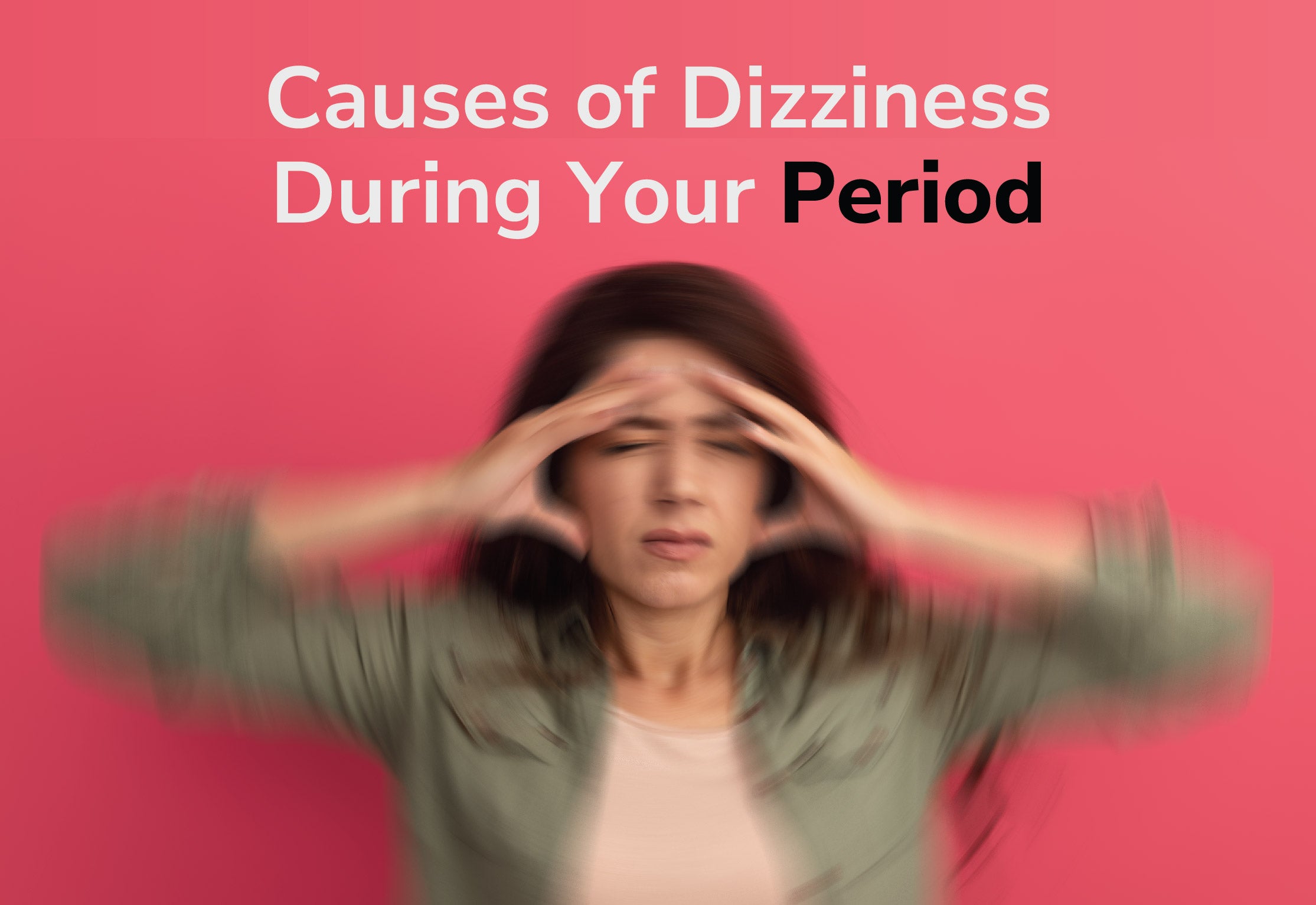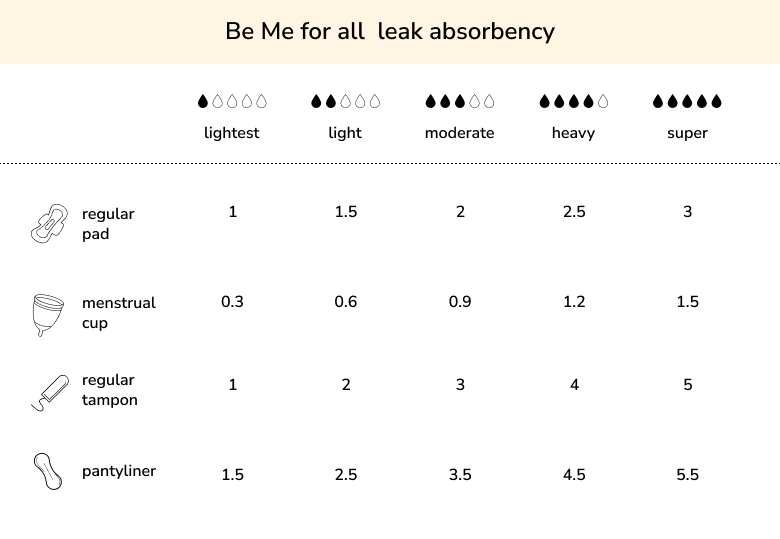
Causes of Dizziness During Your Period
Published At
Dizziness during periods is something many of us experience but don’t talk about enough. It can catch you off guard, making everyday tasks feel like a challenge. Whether it’s a mild inconvenience or something more disruptive, understanding why it happens is the first step to feeling better. Let’s explore what might be causing that dizzy feeling during your cycle and, more importantly, how you can manage it to feel like yourself again.
Why Does Dizziness Happen During Periods?
Dizziness during periods can stem from various physiological changes and hormonal fluctuations that occur in the body. Here are the key causes:
1. Hormonal Changes

During your menstrual cycle, hormone levels fluctuate significantly. Estrogen and progesterone levels drop just before your period starts, which can affect the way your body regulates blood sugar and blood pressure. These changes can lead to feelings of lightheadedness or dizziness.
2. Blood Loss
Heavy periods (menorrhagia) can cause a significant loss of blood, leading to reduced levels of iron and hemoglobin in the body. This condition, known as anemia, can result in insufficient oxygen supply to the brain, making you feel dizzy or faint.
3. Low Blood Pressure

Some individuals experience a drop in blood pressure during their period due to hormonal changes. Low blood pressure can reduce blood flow to the brain, causing dizziness and lightheadedness.
4. Dehydration
Cramps, diarrhea, or increased urination during your period can lead to dehydration. When the body is dehydrated, blood volume decreases, which can affect circulation and lead to dizziness.
5. Low Blood Sugar
Changes in eating habits or cravings during your period can result in low blood sugar levels. Skipping meals or consuming too much sugar can cause your blood sugar to fluctuate, leading to dizziness.
6. Migraine or Headaches

Hormonal changes during menstruation can trigger migraines or headaches in some people. Dizziness is often a common symptom associated with these conditions.
7. Premenstrual Dysphoric Disorder (PMDD)
PMDD is a severe form of premenstrual syndrome (PMS) that can cause a range of symptoms, including dizziness. This condition is linked to hormonal sensitivity and can significantly impact your quality of life.
How to Manage Dizziness During Periods ?

If you frequently experience dizziness during your period, here are some practical tips to help you feel better:
1. Stay Hydrated
Drink plenty of water throughout your menstrual cycle to prevent dehydration. Herbal teas or electrolyte-rich drinks can also help maintain hydration levels.
2. Eat a Balanced Diet

Focus on iron-rich foods like spinach, lentils, and fortified cereals to prevent anemia. Include complex carbohydrates, protein, and healthy fats to stabilize blood sugar levels.
3. Avoid Skipping Meals
Ensure you’re eating regular meals and snacks to keep your blood sugar stable. Incorporate whole foods and limit sugary snacks that can cause spikes and crashes in blood sugar.
4. Rest and Relax
Dizziness can be aggravated by stress and fatigue. Take time to rest, practice deep breathing exercises, or try yoga to improve circulation and reduce stress.
5. Monitor Your Symptoms
Keep track of when dizziness occurs during your cycle. This can help identify triggers and allow you to manage them more effectively. If dizziness is severe or persistent, consult a healthcare professional.
6. Use Over-the-Counter Remedies
Remedies like iron supplements or multivitamins can help prevent anemia, but always consult your doctor before starting any new supplements.
7. Treat Migraines
If migraines are causing dizziness, consider migraine-specific treatments or consult a doctor for medication options that can alleviate both headaches and dizziness.
8. Incorporate Gentle Exercise
Engaging in light activities like walking, stretching, or yoga can improve circulation and help with dizziness. Avoid high-intensity workouts if you feel lightheaded, but staying active within your comfort level can often help.
Lifestyle Changes to Prevent Dizziness
Making small but consistent changes to your lifestyle can reduce the chances of dizziness during periods:
Sleep Well

Aim for 7-9 hours of quality sleep to allow your body to recover and regulate hormones. Poor sleep can worsen symptoms of fatigue and dizziness.
Stress Management
Chronic stress can amplify dizziness. Practice mindfulness, meditation, or other stress-relieving techniques regularly.
Limit Caffeine and Alcohol
These can dehydrate the body or affect blood pressure, worsening dizziness. Stick to hydrating drinks, especially during your period.
When to See a Doctor
While dizziness during periods is often manageable, it’s essential to seek medical advice if:
- Dizziness is severe or accompanied by fainting.
- You experience heavy periods with large blood clots.
- Symptoms persist even after your period ends
- There are additional symptoms like chest pain, shortness of breath, or extreme fatigue.
These signs could indicate an underlying condition such as severe anemia, hormonal imbalance, or other health issues that require medical attention.
Takeaway
Dizziness during periods is a common symptom that can be caused by hormonal changes, blood loss, dehydration, or other factors. By understanding the causes and adopting effective management strategies, you can reduce discomfort and improve your overall menstrual health. Remember, if dizziness persists or significantly affects your daily life, don’t hesitate to consult a healthcare professional. Managing your health during your period is vital for a happier and more comfortable cycle.
For much such informative content follow us on our community page.









